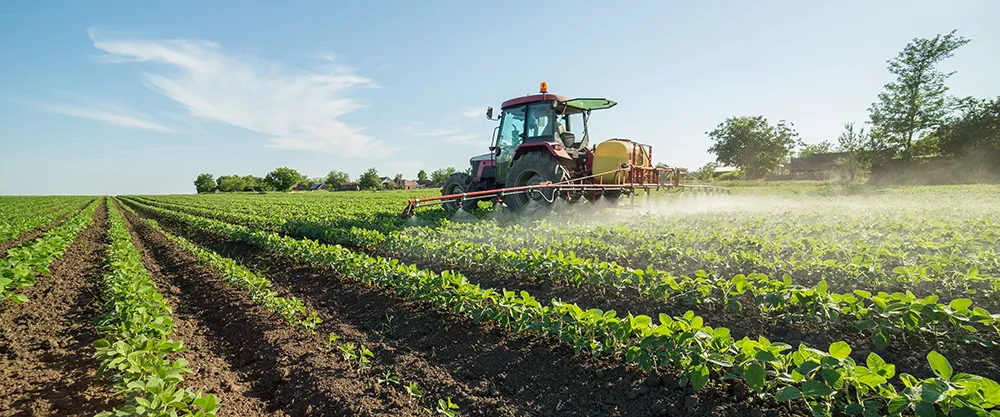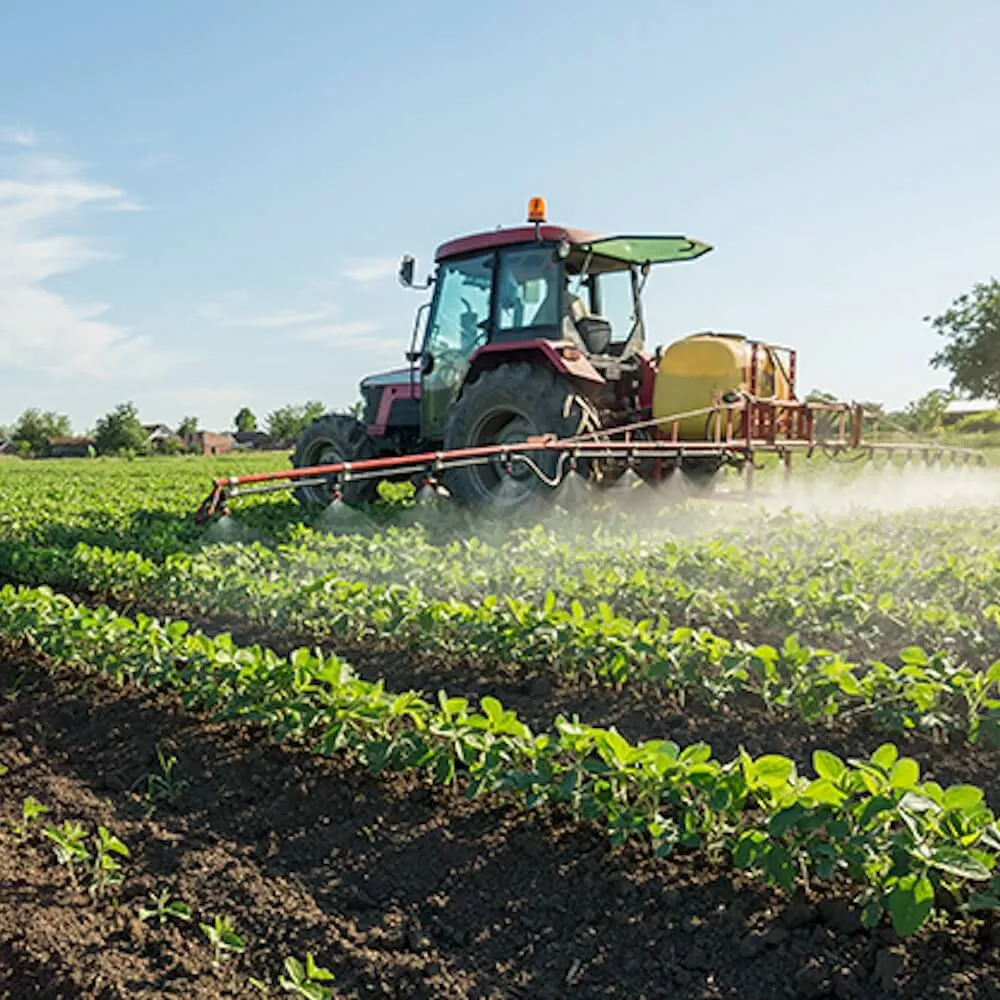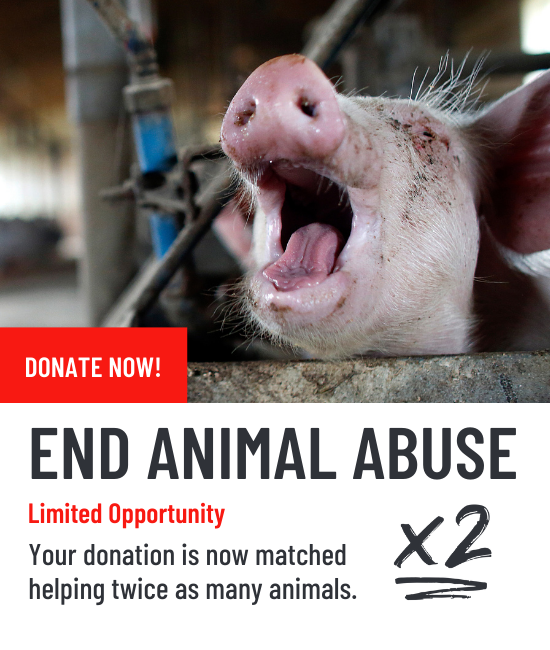

National Food Strategy
The UK’s food system needs revolutionising!
In 2019, the UK Government asked for public contribution on the next National Food Strategy – an independent review for the Government on the UK’s food system and recommendations for the future. This strategy was the first of its kind for 75 years and was the nation’s only opportunity to contribute to a far-reaching, impactful set of actions and policies that could potentially change the future of farming in the UK.
Animal Equality submitted an official response to the consultation setting out our recommendations about how to transform the food system into a sustainable and animal-friendly one, citing evidence of the wide-reaching benefits a plant-based food system would have.
We also encouraged our supporters to submit personal responses to the consultation. To help people do this we prepared some facts and statistics that could come in useful, which are listed below.
The National Food Strategy was released in 2021 and calls for a multitude of changes to the UK’s food industry, including measures to ensure a 30% decrease in public meat consumption over the next decade.
Animals
Billions of animals are raised on intensive farms in the UK every year. They are forced to endure practices that cause immense suffering, prevent their natural behaviours and are treated like mere commodities, despite being sentient, emotional, smart individuals. These practices are in place with profit in mind and to make it possible to farm animals intensively, not in the interests of the animals and their welfare. For example, when keeping 2000 pigs in close confinement, tails are usually removed to avoid being bitten off as a result of aggression caused by unnatural living conditions.
Reference: https://animalequality.org.uk/issues/, https://www.livescience.com/39717-are-pigs-as-smart-as-dogs.html, https://pork.ahdb.org.uk/media/273607/enrichment-guide-2017.pdf
–
Many farmed animals, such as pigs, are as intelligent as dogs and cats, and even toddlers, yet the vast majority live their lives on intensive farms, unable to carry out their natural behaviours. Although an animal’s level of intelligence does not equate to the value of their lives, it is useful to note that treating dogs or children the way we treat pigs would lead to imprisonment for cruelty despite both suffering in the same way.
Reference: https://earthsky.org/earth/chicken-intelligence, https://www.psychologytoday.com/gb/blog/animal-emotions/201506/pigs-are-intelligent-emotional-and-cognitively-complex
–
Every year in the UK billions of animals are farmed for their flesh, eggs and milk. Around 90% of these animals are on factory farms, forced to endure the worst, most intensive practices that cause prolonged suffering for their entire lives. Many UK farms are so big they fit the definition of a US mega-farm.
References: https://www.thebureauinvestigates.com/stories/2017-07-17/intensive-numbers-of-intensive-farming
–
Standard practice on intensive farms includes the non-therapeutic use of antibiotics and keeping animals in overcrowded close confinement. Around half of the hens on UK egg farms are in cages and pigs are kept in restrictive farrowing crates. Separating mothers from their babies is an intrinsic part of the dairy industry and all farmed animals are denied adequate enrichment leading to fighting and injuries, hernias and infection. Poor husbandry and filthy conditions are commonplace. All of these issues have been exposed many times by investigations and exposés by organisations such as Animal Equality.
Reference: https://animalequality.org.uk/news/
–
Farmed animals on UK farms are not adequately protected from harm. Although the Government claims that we have some of the strongest and most thorough laws and assurance schemes of any country, these are often not enforced and seemingly routinely flouted. Investigations of farms are consistently exposing law breaking and malpractice. Laws and schemes mean nothing unless they are put into practice in the form of inspections and Government oversight. At present DEFRA conducts a minimum of 1 unannounced inspection every year and prior to recent Animal Equality investigations of Red Tractor certified pig and chicken farms, Red Tractor had just 1 in 1000 unannounced inspections. This is woefully inadequate.
References: https://www.thetimes.co.uk/article/farm-animals-tortured-under-red-tractor-label-rcbrhxqlm, https://animalequality.org.uk/news/breaking-violence-and-neglect-filmed-on-a-red-tractor-approved-pig-farm/,
https://assets.publishing.service.gov.uk/government/uploads/system/uploads/attachment_data/file/762430/animal-welfare-licensing-procedural-guidance.pdf
–
Fish are the most exploited animals on the planet, with trillions farmed and wild caught every year – so many that it is not possible to accurately record their numbers. Despite this, there are no specific legal protections for fish welfare in UK law. Many species of farmed fish suffer terribly from close confinement, lice and other disease outbreak on farms and inappropriate husbandry. Fish are often killed inhumanely, enduring a slow, painful death.
References: http://fishcount.org.uk/fish-count-estimates-2, http://fishcount.org.uk/farmed-fish-welfare/farmed-fish-slaughter, http://fishcount.org.uk/published/std/fishcountstudy2.pdf
–
Environment
In the UK the average person eats 219g, or about 2-3 portions of meat per day. This is the same as over 7kg of CO2 equivalent. In a year this amounts to the same emissions as a return flight from London to Vancouver!
Reference: https://www.bbc.co.uk/news/health-47057341, https://www.researchgate.net/publication/263353807_Dietary_greenhouse_gas_emissions_of_meat-eaters_fish-eaters_vegetarians_and_vegans_in_the_UK
–
Globally, food production contributes 20-30% of GHG emissions, with agricultural production being by far the biggest producer (24% of all human-caused emissions).
Reference: https://foodsource.org.uk/sites/default/files/chapters/pdfs/foodsource_chapter_3.pdf
–
Meat from farmed animals is the most intensive, followed by other animals (fish and crustaceans), then animal products like eggs and milk. Although plant-based foods too can carry an environmental toll – through long distance transport, for example – they are by far the smallest food contributor.
Reference: https://foodsource.org.uk/sites/default/files/chapters/pdfs/foodsource_chapter_3.pdf
–
Not only a greenhouse gas source, agriculture is a primary driver of deforestation – since pasture is created and arable land is used to meet the demand for animal feed – as well as water scarcity (agriculture uses more freshwater than any other human activity) and soil erosion.
Reference: https://science.sciencemag.org/content/361/6399/eaam5324
–
Since 1945 in the UK we have lost 97% of flower meadows, 50% of ancient woodlands, 40% of heathlands, 50% of wetlands and 224,000 km of hedgerows, all due to animal farming.
References: https://www.theguardian.com/commentisfree/2015/may/18/losing-97-percent-britain-wildflower-meadows-matters-butterfly
https://www.theguardian.com/environment/2008/oct/21/forests-conservation
http://news.bbc.co.uk/1/hi/sci/tech/3123957.stm
https://www.wwt.org.uk/news/2019/10/04/state-of-nature-report-2019-what-it-means-for-wetlands/17748
http://wildlifesupportandconservation.org/wp-content/uploads/2012/07/Hedgerows-for-Dormice-Project1.pdf
–
With the popularity of plant-based milks on the rise, innovation in production of oats, peas, soya, hemp and nuts would be a viable alternative and far more environmentally-friendly livelihood for farmers.
–
Not only a major cause of pollution and climate change, industrial agriculture is also a main driver of biodiversity loss and species extinction.
References: https://www.nature.com/articles/d41586-019-01448-4, https://www.sciencemag.org/news/2015/08/meat-eaters-may-speed-worldwide-species-extinction-study-warns, https://www.independent.co.uk/environment/mass-extinction-life-on-earth-farming-industrial-agriculture-professor-raj-patel-a7914616.html
–
Health
Recent research suggests that long-term consumption of red meat (particularly if it’s processed) is associated with heart disease, certain types of cancer and type 2 diabetes.
Reference: https://www.ncbi.nlm.nih.gov/pubmed/26780279
–
The World Health Organisation’s International Agency for Research on Cancer (IARC) has classified processed meat as carcinogenic to humans, with red meat classified as ‘probably carcinogenic’. In fact, diets high in red meat could be responsible for 50,000 cancer deaths per year worldwide.
References: https://www.who.int/features/qa/cancer-red-meat/en/, https://www.theguardian.com/society/2015/oct/26/processed-and-red-meat-what-are-the-cancer-risks
–
Several studies have found a significantly lower risk of heart disease, stroke, type 2 diabetes, and general mortality for those consuming protein from plant sources, such as nuts, pulses, and whole grains. Transitioning from a high meat diet to a more plant-based diet might even reduce global mortality rates by 6 to 10%.
References: https://www.ncbi.nlm.nih.gov/pmc/articles/PMC5466941/, https://www.bbc.com/future/article/20160926-what-would-happen-if-the-world-suddenly-went-vegetarian
–
Meat-eaters are also three times more likely to be obese than vegetarians, and nine times more likely than vegans, with veggies and vegans generally having a faster metabolism than meat-eaters!
Reference: shorturl.at/fhtL1, https://jandonline.org/article/S2212-2672(13)01113-1/abstract
–
Meat is a potential source of various food borne infections. Not only that, antibiotics are widely used non-therapeutically in meat production to prevent disease outbreak (which can spread quickly in overcrowded conditions) and promote growth amongst the farmed animals. There is serious concern that, due to this, antibiotic resistance is building in humans, posing a potentially major public health crisis.
Reference:
https://www.ncbi.nlm.nih.gov/pmc/articles/PMC2603155/, https://www.nhs.uk/news/medication/antibiotic-use-in-farm-animals-threatens-human-health/
–
Plant-based diets that are rich in beans, nuts, seeds, fruit and vegetables, wholegrains such as oats, rice, and cereal based foods such as breads, and pasta can provide all the nutrients needed for good health. This includes essential fats, protein, vitamins, minerals and plenty of fibre too.
Reference: https://www.bda.uk.com/foodfacts/plant-based_diet
–


